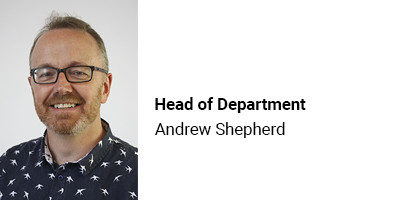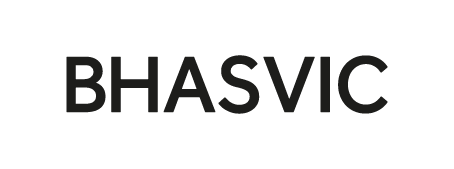Business A Level
Qualification: GCE A Level in Business
Exam board & Specification Code: AQA; 7138; Specification
Course Entry Requirements: 4 English Language GCSE and 4 in Maths GCSE. It is possible to study Business BTEC or Business A level alongside Economics A level but it is not possible to study Business BTEC and Business A level together.
Please make sure that you have understood the overall entry requirements to study at BHASVIC. These are available here and outline the GCSE grades you need to take up one of the Study Programmes at the college.
Length and size of qualification: 2 year single course, equivalent to 1 A level
Timetable hours: 4.5 hours per week
Assessment method: 3 x 2 hour exams
BHASVIC Department: Business and Economics
What will I study?
You will develop a critical understanding of business behaviour and the business environment by investigating and analysing real-life business successes and failures. You can then use this invaluable knowledge to succeed in any career! Before and throughout this course, all Business students are encouraged to read up on businesses (brands, events, organisations, individuals, etc.) that you are each interested in. We also expect students to take an interest in current affairs so that you all can begin to understand and evaluate the causes and effects of consumer, business, and Government behaviour. You will study leadership, attracting customers, nurturing employees, managing finances, developing strategic plans, and managing change. You will also develop your skills of communication, working independently, teamwork, problem solving, and evidence-based decision making, all through a collaborative and empathetic approach.
Is this course right for me?
You need a genuine interest in the world outside of education and business. You need to be able to work individually or collaborate in groups to research or discuss a particular business situation, questioning at every opportunity. Business is a subject that requires students to learn theories, identify, and assess them in business case studies, within an inclusive environment. There is a substantial element of reading and writing. Analysing data and communicating using written, numerical, visual, and verbal methods are all part of the course. Students are expected to study given basic business theory every week so that we can use this self-taught knowledge in lessons and exams to explore real business case studies and effectively answer exam questions. Developing these skills is essential to growth both professionally and personally. Business complements all subjects because every student will be an employee at some point, whether as a dancer or as an engineer, so will benefit from critiquing businesses with understanding and empathy.
Listen to what our students have to say about Business
Frequently asked questions
The content is very similar and they’re both level 3 qualifications which means that, for example, they are both awarded the same UCAS points. The main difference in the two qualifications is in how they are assessed. The Business A Level is assessed through three 2-hour exams at the end of the second year, whereas the Business National BTEC is assessed through one coursework assignment and one externally assessed unit during each year you study the course.
We only ask for a grade 4 in Maths GCSE because Business and Economics students will be analysing data using basic arithmetic. There’s nothing more complicated than arithmetic in our subjects!
All and any of them! Always choose subjects that you are genuinely interested in. If you want to study an Economics BSC degree at university then you do need A Level Maths. Economics and Business BA degrees don’t require Maths A Level.
We expect a minimum of 4 hours of independent study per subject per week, as does every other BHASVIC subject.
Where next?
This subject can take you in many different directions, such as Marketing, HR, Finance, Management, and International Relation. It can provide you with a considered understanding of the functions that are relevant to all employment routes and sectors of the economy. Whatever your skill set, there is a role within a business to suit you, from customer-facing roles to financial analysis. The skills you gain on the course will allow you to make a valuable contribution to businesses in the future. Degree apprenticeships also exist for students to progress on to after BHASVIC. Useful websites to research careers and wider progression options could include the All About Careers, The Apprenticeship Guide, and the Chartered Institute of Management. This course will encourage you to create a supportive and positive social and professional network for your career journey.
Apply View DepartmentHigher Education - Business
Last year, 145 BHASVIC students went on to study Business at 54 different universities.
Due to the wide range of degrees available crossing Management, Marketing, Finance and Accounting it remains year on year one of our top two subjects for University study. Examples of degrees chosen by students included International Wine Business, Commercial Management and Quantity Surveying, International Business Management and Spanish and Sports Business Management. Entry to University can be through studying Business A level or BTEC.
Should I study Business at degree level?
There is huge range of business degrees available, from business or business management to more specialised degrees. Teaching methods on a business degree can include lectures, seminars and case studies. Options can include a placement year with an employer and study abroad. Modules included in business degree can include business law, marketing, accounting and finance, personal skills development, business analytics /quantitative methods for business (maths-based analysis).
You can choose to study Business or a closely related subject, for example
- business management
- business administration
- accounting
- human resource management
- marketing awareness
- business analytics
Entry Requirements
You don’t usually need specific subjects. For some related subjects, such as Economics, Maths A level is sometimes required.
Top Universities for Biology
St Andrews, Kings College, Warwick, Bath, Loughborough
Durham, Lancaster, Leeds, York – all very high student satisfaction scores
UCL, Exeter, Glasgow, Birmingham - all with top graduate prospects
Many of our students choose a combined degree - applications from our students have included
- International Business and Management
- Banking and Finance
- Marketing and Management
- Finance and Investment
- Equine Performance and Business Management
Example entry requirements (please check):
A-Level/BTEC equivalents:
Exeter AAB (A level) / DDM (BTEC)
Essex BBB (A level) / DDD (BTEC)
Bristol UWE (foundation) DD (A level) / MM (BTEC)
Why not try a foundation degree or higher apprenticeship?
For example: Civil Service fast track
Some examples of Business & Finance degrees that our BHASVIC students have gone onto study in the past few years are:
- Accounting, Finance and Economics (with Integrated Foundation Year)
- Banking and Finance
- Business and Events Management
- Business and Law
- Business Management / Spanish
- Business of the Creative Industries
- Fashion Marketing and Consumer Behaviour
- Finance, Investment & Risk- 4 years with sandwich year
- International Business Management with a Year Abroad
- Law with International Business
- Marketing & Advertising with Business Experience
- Marketing Communications with Public Relations
- Music Business
- Quantity Surveying and Commercial Management (with Foundation Year)
- Sports Business and Entrepreneurship
- Sports Marketing
How BHASVIC helps: We have a wide range of information and resources to support students applying for university including subject area guides, personal statement and UCAS resources, super-curricular activity guides, open day and bursary information. We also cover university research, careers, art foundation and all other destinations in depth in tutorial and students can choose an appropriate pathway for them in the second year from UCAS, Employability & Enterprise, Visual Arts, Oxbridge and Medics. Our Spring Futures Fair brings in a huge number of university visitors with workshops and information stands and departments will bring speakers in wherever possible.
Careers - Business
Business is a subject useful for careers including:
- Construction manager
- Environmental engineer
- Business Development manager
- Project manager
- Human resources officer
- Logistics and distribution manager
- Marketing executive
- Retail manager
- Sales executive
- Systems analyst
Career Prospects
Very few jobs are completely out of reach for a good business student. Thousands of students from this subject go into professional jobs every year, and average starting salaries are often above the average for all subjects. It's not a surprise to hear that a lot of students go into management, but business students tried their hands at all sorts of different jobs last year – not just those within the finance industry, but also community work, IT, marketing and PR and even surveying.
Local Market Information
Women entrepreneurs – Nat West Funding Opportunity Nat West have teamed up with Crowdfunder to help women who want to start their own business get started. They will provide coaching, mentoring and networking opportunities as well as up to 50% of the fundraising target (max. £5,000) in grant funding for some projects. UK residents with new UK projects may apply
Examples of apprenticeships and opportunities include:
- Business Administration Apprentice
- Volkswagen Gatwick Service Advisor Apprentice
- Study for a Degree Apprenticeship in Digital Marketing
- Study for a Diploma in Business Management
How BHASVIC helps: We have an excellent Careers Hub and careers advisors who are available for appointments through student services. Local jobs are advertised and they will advise on skills and specialist areas such as degree apprenticeships. Students can choose an appropriate pathway for them in the second year from UCAS, Employability & Enterprise, Visual Arts, Oxbridge and Medics. Our Spring Futures Fair brings in a huge number of careers & apprenticeship visitors with workshops and information stands and departments will bring speakers in around the subject area.
Skills - Business
You will gain many transferable skills studying Business that will be valued in the workplace including:
Communication skills, Analytical and critical thinking, Problem solving, Decision making, Logical thinking, Report writing, Project & resource management, Self-motivation
Local Skills
The Local Skills agenda considers job prospects and employment in our local area of Sussex. Many of our students will contribute to the National Skills agenda and go onto find a career in a wide range of sectors. For students in Sussex our local skills are identified as the following sectors:
- Construction
- Creative & Cultural
- Digital (includes IT and Technology)
- Engineering & Manufacturing
- Healthcare (includes Bio Life Sciences and Pharmaceutical)
- Visitor & Hospitality
- Land-based (includes Agriculture and Viticulture)
- Green Skills
|
Degree choices that match the Local Skills agenda for Digital/IT Industries that BHASVIC students have gone onto study in the past few years include:
Career choices that match the Local Skills agenda for Digital/IT Industries that BHASVIC students have gone onto study in the past few years include:
How BHASVIC helps: Skills Week in A1 helps students build skills in the workplace and a focus on developing skills through tutorial in A1 and A2 supports students in writing outstanding Personal Statements and CVs. We know our students have already gained a wide variety of skills at home and with extra-curricular activities and will increasingly take up jobs. Our focus is on supporting them to evidence skills already gained, identify gaps and ensure that they transfer that to CVs and applications. This is in partnership with every curriculum area.
|
|
